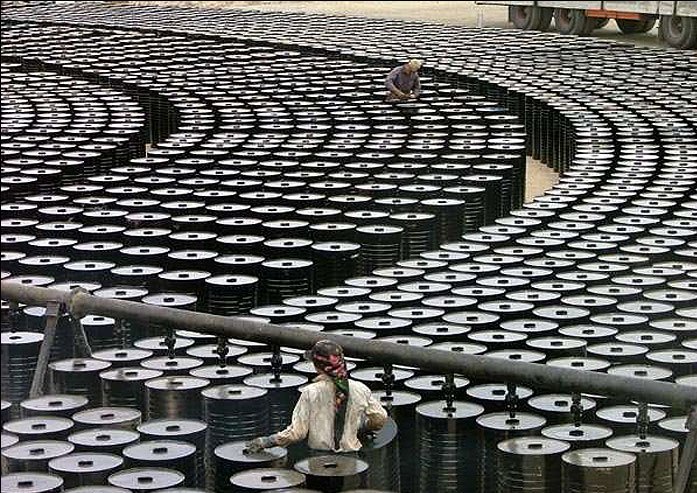 Tehran, Jan 14, IRNA - Iran�s oil and gas condensate production capacity will exceed 5.7m bpd by mid-March 2019, said the deputy oil minister for planning and supervision over hydrocarbon resources.
Tehran, Jan 14, IRNA - Iran�s oil and gas condensate production capacity will exceed 5.7m bpd by mid-March 2019, said the deputy oil minister for planning and supervision over hydrocarbon resources.Speaking in a meeting held in Iran�s Chamber of Commerce, Industries, Mines and Agriculture to study the performance of Oil Ministry with regard to the �Resistance Economy� policies, Mansour Moazzemi added that three articles of �Resistance Economy� pertain to the oil sector.
He said these articles have been used by the ministry to devise several plans, the first of which is increasing oil and gas condensate production capacity, with focus on energy extraction from fields shared with neighboring countries.
The official said increasing natural gas production and export is the second plan devised by the Oil Ministry within the framework of �Resistance Economy�.
�Presently, Iran�s gas production capacity is 100m cubic meters more than the figure for the year to March 2014,� he said, adding that it is expected to increase to 200 million cubic meters by mid-March 2016.
Moazzemi said about 27b liters of liquid fuels, worth $18b, have been used in domestic refineries in the year to March 2014 while the figure is expected to fall to $15b by mid-March 2015.
�This means that Iran will be able to export such fuels next year,� he said.
The official said based on a plan drawn up by the Oil Ministry, Iran�s gas output capacity is expected to hit 1,300m cubic meters per day by mid-March 2019, pointing out that seven phases of South Pars Gas Field are scheduled to come on stream by July.
He said $36b are required for implementing 67 petrochemical incomplete projects nationwide.
�Iran is expected to be capable of exporting $80m worth of petrochemical products by 2025, if the required funds are allocated,� he said.
Moazzemi said the government is determined to use the capacity of private sector for implementing petrochemical projects.
The official stressed that increasing the production and export of oil derivatives is the fourth plan devised by the Oil Ministry.
�The current capacity of domestic refineries stands at 1.8m bpd,� he said.
�Persian Gulf Star Gas Condensate Refinery, with a daily refining capacity of 360,000 barrels of gas condensates, is near completion.�
He noted that the first phase of the refinery will become operational by mid-March 2016, adding that this will help increase daily gasoline production capacity by 12m liters.
Moazzemi said optimizing energy consumption and improving energy productivity are other objectives pursued by the ministry.
�At present 85 percent of the country�s population have access to natural gas and the figure is expected to hit 97 percent by mid-March 2019,� he said.
By IRNA
The Iran Project is not responsible for the content of quoted articles.










